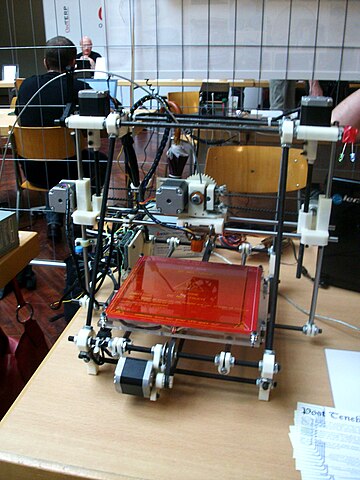Python Software Foundation in European trademark battle
![]() Calling all companies using software built using the Python programming language! The use of the term Python for free and open source software is at risk in the EU due to a Community trade mark application. The situation is explained in the following Python Software Foundation News blog post from yesterday.
Calling all companies using software built using the Python programming language! The use of the term Python for free and open source software is at risk in the EU due to a Community trade mark application. The situation is explained in the following Python Software Foundation News blog post from yesterday.
There is a company in the UK that is trying to trademark the use of the term “Python” for all software, services, servers… pretty much anything having to do with a computer. Specifically, it is the company that got a hold on the python.co.uk domain 13 years ago. At that time we weren’t looking a lot at trademark issues, and so we didn’t get that domain.
This hasn’t been an issue since then because the python.co.uk domain has, for most of its life, just forwarded its traffic on to the parent companies, veber.co.uk and pobox.co.uk. Unfortunately, Veber has decided that they want to start using the name “Python” for their server products.
We contacted the owners of python.co.uk repeatedly and tried to discuss the matter with them. They blew us off and responded by filing the community trademark application claiming the exclusive right to use “Python” for software, servers, and web services – everywhere in Europe.
We got legal counsel in the UK and we (the PSF) are opposing the community trademark application, but our own trademark application hasn’t yet matured. Accordingly, we are going with the trademark rights we have developed through using “Python” consistently over the past 20 years.
According to our London counsel, some of the best pieces of evidence we can submit to the European trademark office are official letters from well-known companies “using PYTHON branded software in various member states of the EU” so that we can “obtain independent witness statements from them attesting to the trade origin significance of the PYTHON mark in connection with the software and related goods/services.” We also need evidence of use throughout the EU.
What can you do?
1. Do you work for a company that uses Python? Are in the EU, do you hire in the EU, or do you have an office in the EU? Could you write a letter on company letterhead that we can forward to our EU counsel?
We would want:
just a brief description of how Python is used at your company how your company looks for and recognizes “Python” as only coming from the PSF, and your view that another company using term Python to refer to services, software, and servers would be confusing.
This doesn’t need to be long – just a couple of paragraphs, but we would want any description of how you use Python for software, web hosting, Internet servers, VPNs, design and development of computer hardware or software, hosting websites, renting servers (like Openstack), or backup services. For those who are interested the specific class descriptions are at the bottom of this message. [1][2]
You can send a PDF copy of the letter to psf-trademarks@python.org
2. Do you have, or know of, anything that was published in the EU and uses “Python” to refer to Python-the-language? Can we get copies, pictures, or scans? This includes:
- Books
- Pamphlets
- Conference programs or talks
- Job listings
- Magazines or other publications
- Prospectuses
You can send a PDF scan of the materials to psf-trademarks@python.org
3. You can also help protect the Python intellectual property with financial support.
Since the costs of a trademark opposition are in the range of tens of thousands of dollars, we will need to find a way to refinance the legal costs of the opposition.
Please consider donating to the Python Software Foundation at:
http://www.python.org/psf/donations/
or get in touch with me directly.This is the first time the PSF has to take legal action to protect Python’s intellectual property. Please do consider helping the PSF in any way you can. The threat is real and can potentially harm your business in Europe, especially if you are in the web hosting business and provide Python as part of your hosting plans.
Please let me know if there are any questions that I can answer. If you know someone who might have this information, please feel free to forward this.
Thanks,
Van Lindberg, Chairman
van@python.org
Python Software Foundation[1] Class 9 – Computer software; Servers for web hosting; VPN [virtual private network] hardware; Internet servers; Internet servers.
[2] Class 42 – Design and development of computer hardware and software; Website hosting services; Hosting computer sites [websites]; Hosting the websites of others; Hosting of websites; Hosting the web sites of others on a computer server for a global computer network; Hosting websites on the Internet; Hosting the web sites of others; Web hosting services; Hosting of digital content, namely, on-line journals and blogs; Application service provider [ASP], namely, hosting computer software applications of others; Website hosting services; Hosting of digital content on the internet; Hosting of web sites; Hosting web sites; Hosting web sites for others; Hosting websites of others; Hosting of internet sites; Hosting the computer sites (web sites) of others; Web site hosting services; Hosting computer sites [web sites]; Hosting web sites of others; Rental of web servers; Servers (rental of web-); Servers (Rental of Web -).

 Communication between the phone and the presentation rendering system will be handled via Bluetooth, according to a presentation given by LibreOffice developer Michael Meeks to
Communication between the phone and the presentation rendering system will be handled via Bluetooth, according to a presentation given by LibreOffice developer Michael Meeks to 



